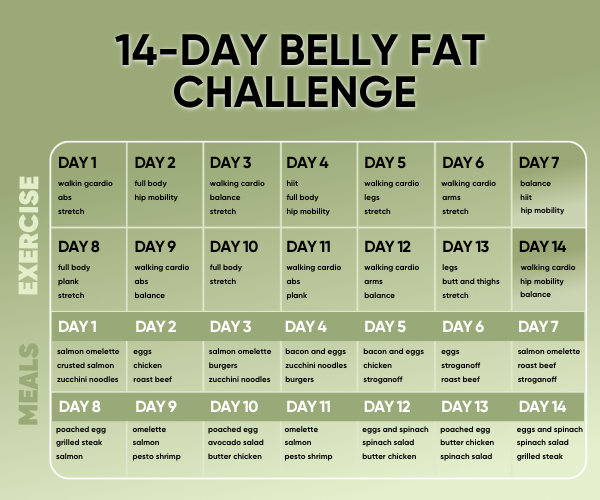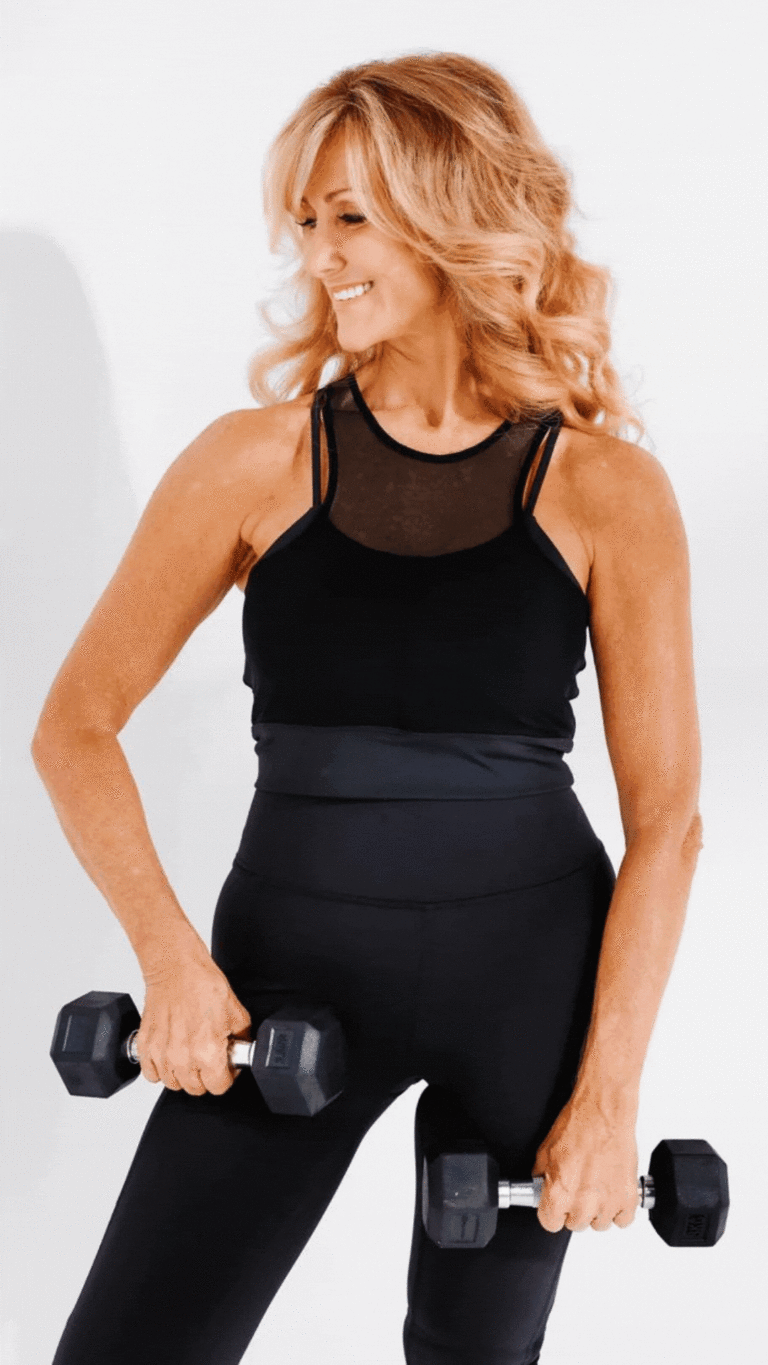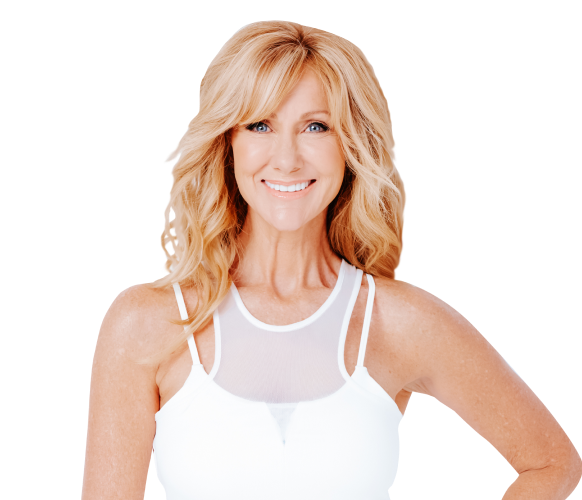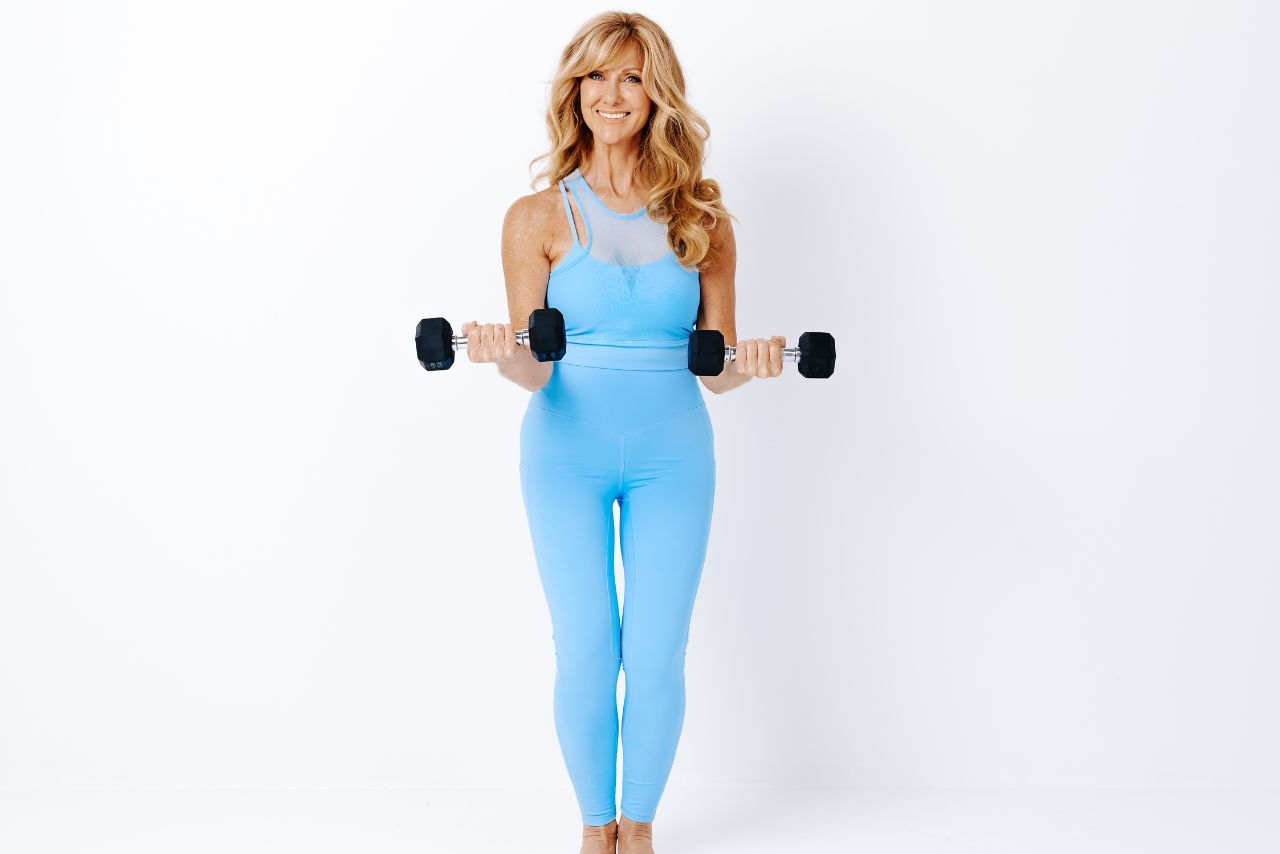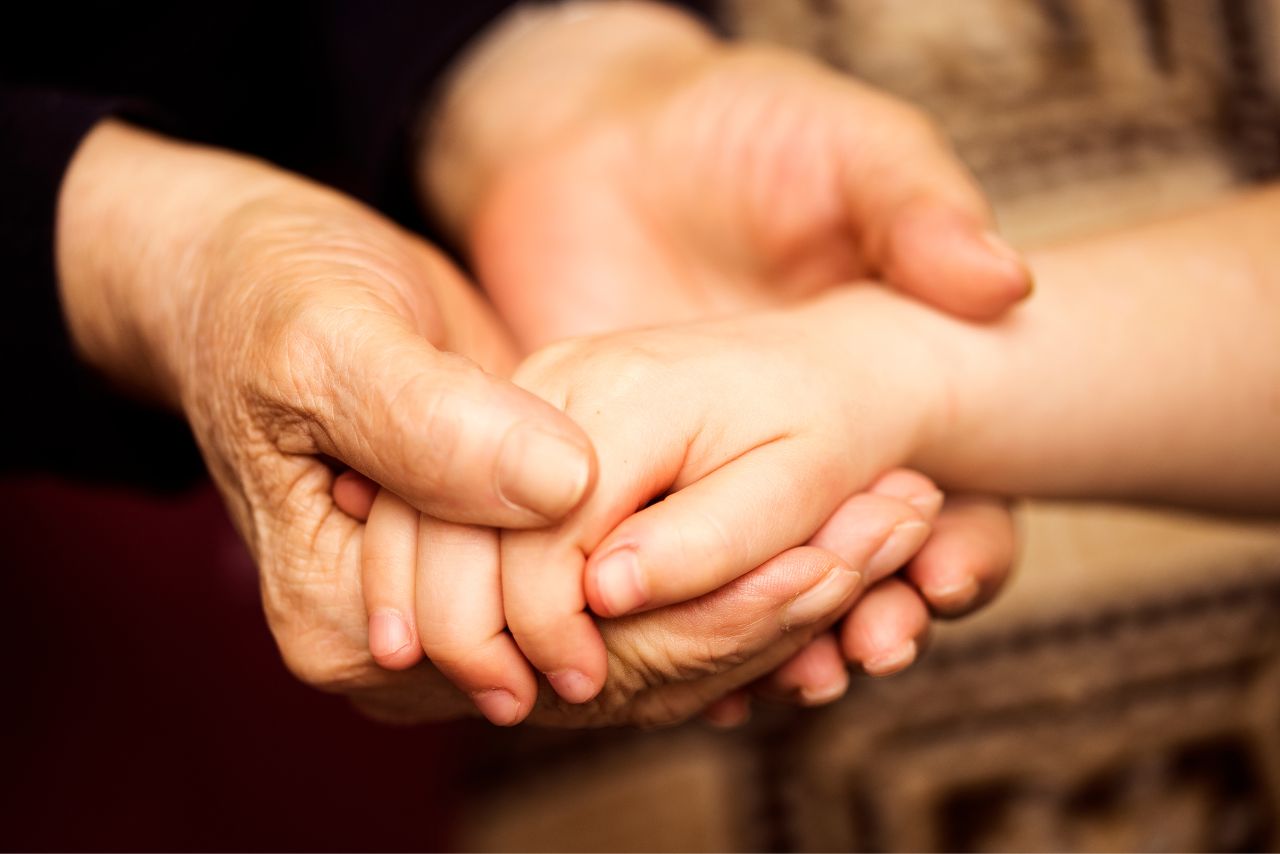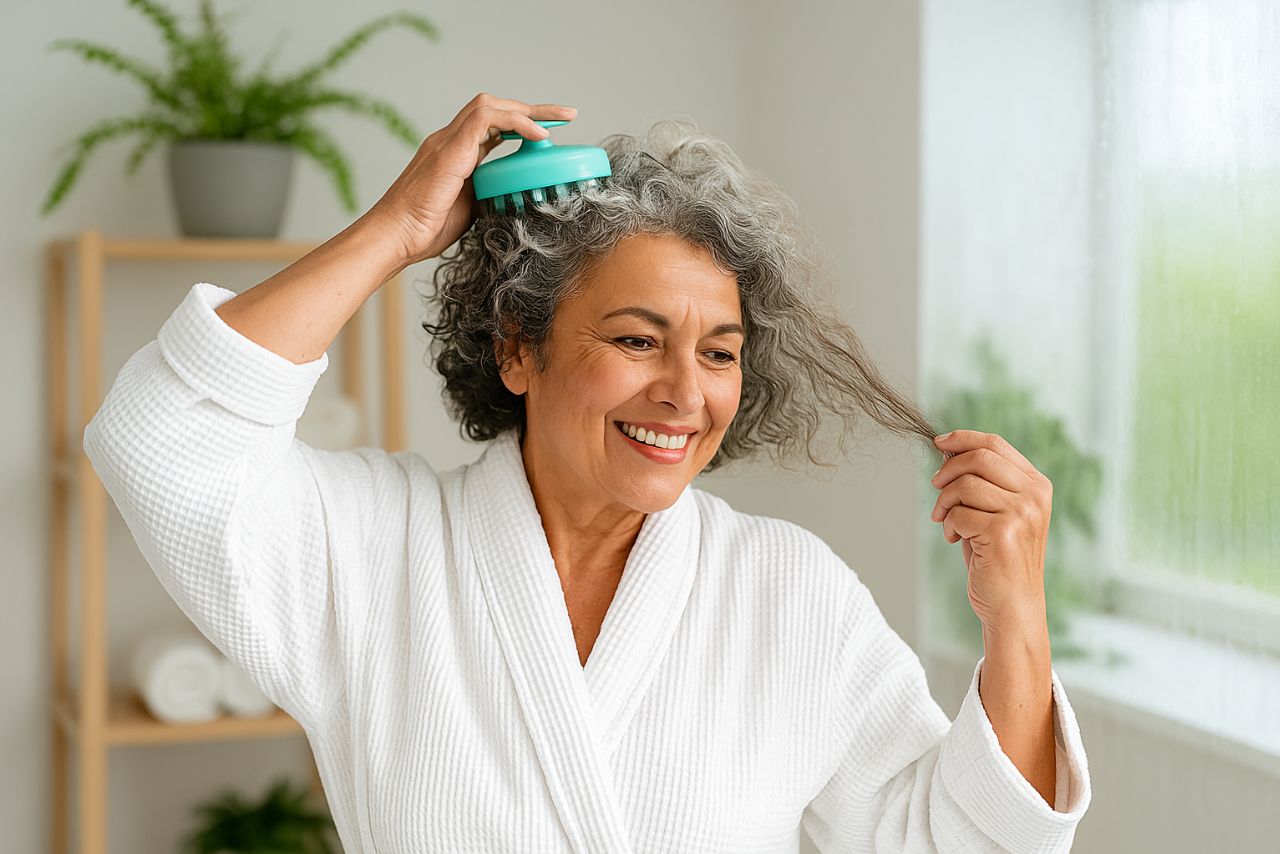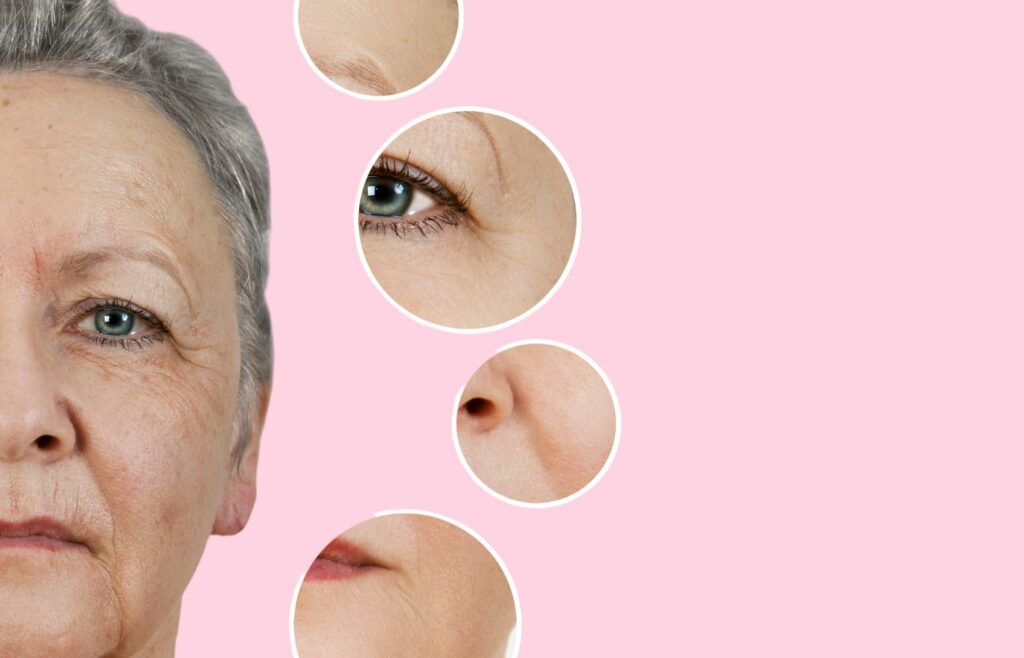
Menopause affects skin in a major way. Dryness, elasticity loss, and wrinkles can result from hormone decline, particularly estrogen.
The body’s largest organ, the skin, protects us from the environment, regulates body temperature, and provides touch.
The skin changes as we age due to intrinsic factors (genetics and hormonal fluctuations) and extrinsic factors (sun exposure, smoking, and pollution).
Hormonal changes during menopause can accelerate skin aging and cause wrinkles and other issues.
That’s why I’ve decided to share a comprehensive guide on menopause and wrinkles, hormonal changes that affect skin health, and how to maintain healthy skin during menopause.
Understanding Menopause and Wrinkles
Wrinkles are a natural part of aging and are caused by collagen and elastin fiber breakdown. After being stretched or pulled, these proteins give the skin structure and elasticity.
Wrinkles and sagging skin develop as collagen and elastin production decreases with age. As estrogen levels drop during menopause, the skin’s structure weakens, and its ability to retain moisture decreases.
Menopause reduces sebum production, causing dryness and skin barrier dysfunction. This makes the skin more susceptible to environmental damage and wrinkles.
Menopause can also redistribute fat deposits in the face, causing skin volume loss. This can worsen wrinkles and sagging skin, especially around the jawline and neck.
READ ALSO: The Ultimate Skin Care Routine for Women Over 50
Menopausal Hormonal Changes and Their Impact on Skin Health
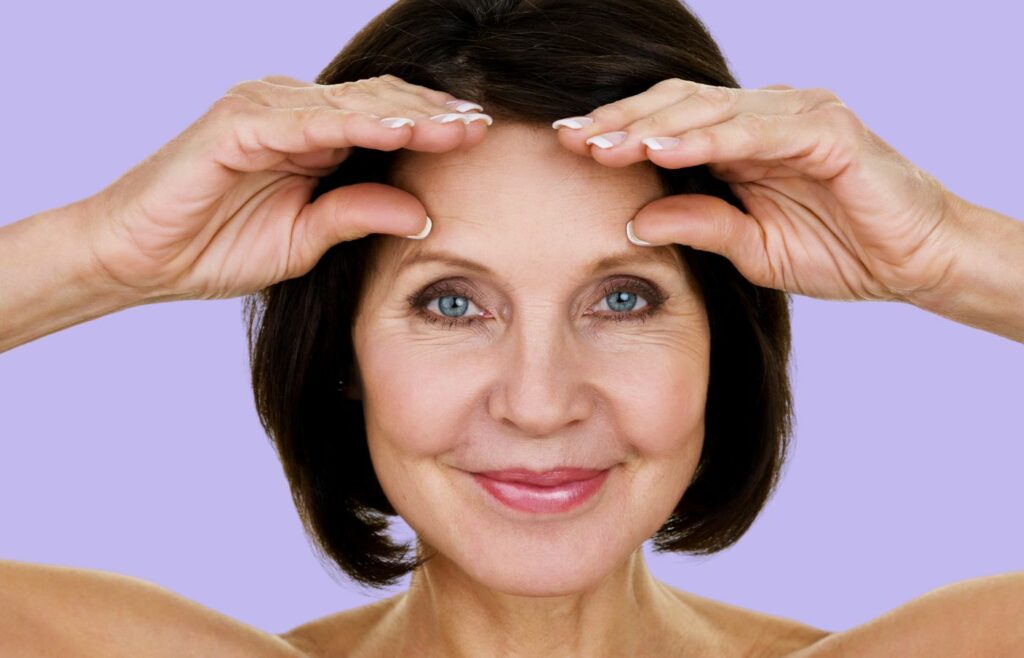
Estrogen and progesterone decline during menopause. These hormones keep the skin healthy and beautiful.
Estrogen stimulates collagen and elastin production, skin cell turnover, and skin moisture. Progesterone controls sebum production and skin elasticity.
Menopause lowers these hormones, affecting skin structure and function. Wrinkles, fine lines, and sagging skin can result from decreased collagen and elastin production.
Dry skin and environmental damage can result from sebum reduction. Skin cell turnover decreases, causing dullness and age spots.
READ ALSO: Everything You Should Know About Perimenopause
The Effect of Skin Color on Menopausal Wrinkles
Menopausal wrinkles happen to everyone, regardless of ethnicity. However, genetics, skin type, and environmental factors can cause wrinkles to form differently in white and black women. Understanding these differences is essential for creating personalized skincare routines and treatments.
White women are more prone to wrinkles than black women because their skin is thinner and less dense. This is mostly due to a lower melanin concentration, which naturally protects against UV radiation. White women are more likely to get sun damage, which accelerates aging and causes wrinkles.
However, black women’s higher melanin content protects them from UV rays. This advantage, combined with a higher collagen fiber density, slows aging and wrinkles. Black skin is thicker and more compact, so wrinkles are deeper and more noticeable when they form.
Despite the differences in body wrinkle processes for white and black women, both groups can benefit from proactive skincare. This includes daily broad-spectrum sunscreen use, antioxidant-rich products, and professional advice on tailored treatments.
Both white and black women can fight aging and look youthful by understanding their skin and using targeted strategies.
READ ALSO: Top 5 Menopause Skin Changes + How To Reverse Them
Common Skin Problems Menopausal Women Face
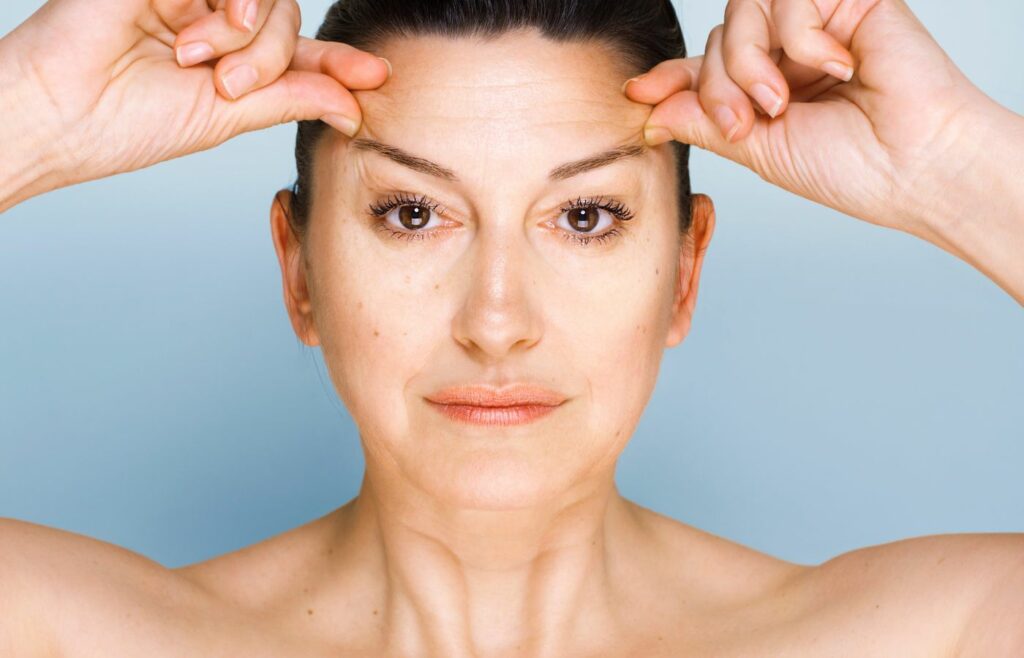
During menopause, women are more likely to suffer from a variety of skin problems, including:
- Dryness: A decrease in sebum production can cause the skin to become dry and flaky, which can lead to itching and discomfort. Dryness can also cause sebum production to decrease.
- Loss of elasticity: As collagen and elastin production decreases, the skin loses its ability to bounce back, resulting in the formation of wrinkles and sagging skin.
- Hyperpigmentation: The decline in estrogen levels can cause an increase in melanin production, leading to the development of age spots and uneven skin tone.
- Acne: Hormonal fluctuations during menopause can cause an increase in the production of androgens, which can lead to acne breakouts and inflammation.
- Rosacea: The decrease in estrogen levels can cause blood vessels in the face to become more sensitive, leading to the development of rosacea, a skin condition characterized by redness, flushing, and visible blood vessels.
READ MORE: How to Lessen the Psychological Effects of Menopause for Over 50
Tips for Maintaining Healthy Skin During Menopause
Menopause skin requires proper skincare, a balanced diet, and lifestyle changes.
Here are some practical tips for better skin during this transitional period:
- Cleanse gently: Use a gentle, hydrating cleanser that won’t strip your skin of its natural oils. Avoid harsh scrubs and alcohol-based products that dry out skin.
- Moisturize regularly: Use a moisturizer for mature skin, which often contains ingredients that boost collagen production and skin elasticity.
- Wear sunscreen: Wear a broad-spectrum SPF 30 sunscreen daily to protect your skin from UV rays.
- Use a retinoid: Vitamin A derivatives can boost collagen production, skin cell turnover, and wrinkle reduction. Retinoids can cause irritation and sensitivity, so consult your dermatologist before starting one.
- Stay hydrated: Drink plenty of water throughout the day to keep your skin hydrated and plump.
- Get enough sleep: Aim for 7-9 hours of sleep per night, as this is when your skin repairs and rejuvenates itself.
- Manage stress: Practice stress-reducing techniques, such as meditation, yoga, or deep breathing exercises, as stress can have a negative impact on skin health.
- Quitting smoking: Smoking is a significant contributor to premature aging, and quitting can help to improve the appearance of the skin.
- Exercising regularly: Regular exercise can help to improve circulation and stimulate collagen production, leading to healthier, more youthful-looking skin. Try Cardio training. Consider performing exercises like squats, lunges, and push-ups with weights or resistance bands. Walking is a low-impact activity that can be performed anytime, anywhere. It is an excellent way to enhance cardiovascular health, keep muscles toned, and lessen stress.
READ ALSO: The Best Exercise For Weight Loss Over 50
Natural Remedies for Menopause-related Wrinkles
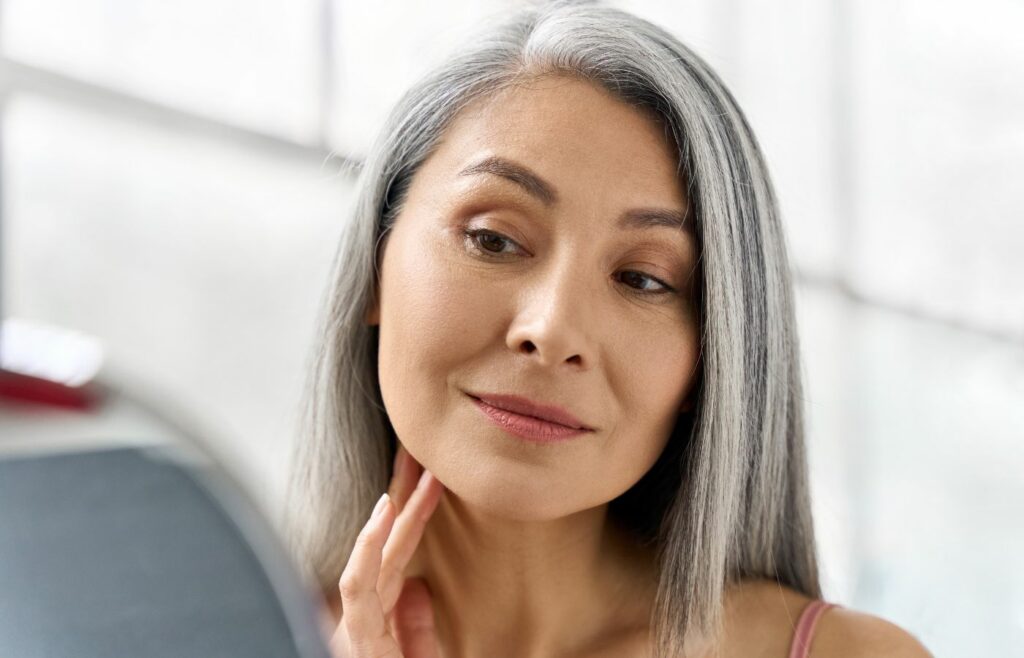
In addition to conventional skincare products and treatments, there are several natural remedies that can help to improve the appearance of menopause-related wrinkles. Some of these include:
- Aloe vera: This soothing plant has been shown to improve skin elasticity and reduce the appearance of wrinkles when applied topically.
- Green tea: Rich in antioxidants, green tea can help to protect the skin from environmental damage and promote collagen production. Drinking green tea or using skincare products containing green tea extract can provide these benefits.
- Rosehip oil: This oil is rich in vitamins A and C, which can help to promote collagen production and reduce the appearance of wrinkles. Applying rosehip oil topically can help to hydrate the skin and improve its texture.
- Honey: This natural humectant can help to moisturize the skin and improve its elasticity. Applying honey as a face mask can help to reduce the appearance of wrinkles and brighten the complexion.
- Coconut oil: This oil is rich in medium-chain fatty acids, which can help to hydrate the skin and improve its texture. Applying coconut oil topically can help to reduce the appearance of wrinkles and improve skin elasticity.
While natural remedies for menopause and wrinkles can provide some benefits for menopausal skin, it’s essential to use caution when trying out new products or treatments. Some natural ingredients can cause irritation or allergic reactions, so it’s important to do a patch test before using them on your face.
READ ALSO: 10 Makeup Tips For Menopausal Skin Changes For Women Over 50
Reducing Menopausal Wrinkles: Diet & Hydration
Healthy skin during menopause requires a balanced diet and adequate hydration. Your skin can stay strong and supple by eating a variety of fruits, vegetables, whole grains, lean proteins, and healthy fats.
Some key nutrients for skin health include:
- Vitamin C: This antioxidant helps to promote collagen production and protect the skin from UV damage. Good sources of vitamin C include citrus fruits, strawberries, bell peppers, and broccoli.
- Vitamin D: Vitamin D helps reduce wrinkles by promoting collagen production and reducing inflammation. Vitamin D deficiency may also accelerate skin aging and wrinkles. Maintaining vitamin D levels through diet, sunlight exposure, or supplementation supports skin health.
- Vitamin E: This antioxidant helps to protect the skin from environmental damage and support skin cell regeneration. Good sources of vitamin E include nuts, seeds, and vegetable oils.
- Omega-3 fatty acids: These healthy fats help to maintain the skin’s moisture levels and support skin cell function. Good sources of omega-3s include fatty fish, flaxseeds, chia seeds, and walnuts.
- Zinc: This mineral plays a key role in skin cell repair and wound healing. Good sources of zinc include oysters, red meat, poultry, beans, and nuts.
- Selenium: This antioxidant helps to protect the skin from oxidative stress and supports skin elasticity. Good sources of selenium include Brazil nuts, tuna, and whole grains.
Hydration is essential for plump, youthful skin, along with a balanced diet. Drinking at least 8 glasses of water a day can hydrate your skin, reduce wrinkles, and flush out toxins.
When to Consult Your Dermatologist for Menopausal Wrinkles
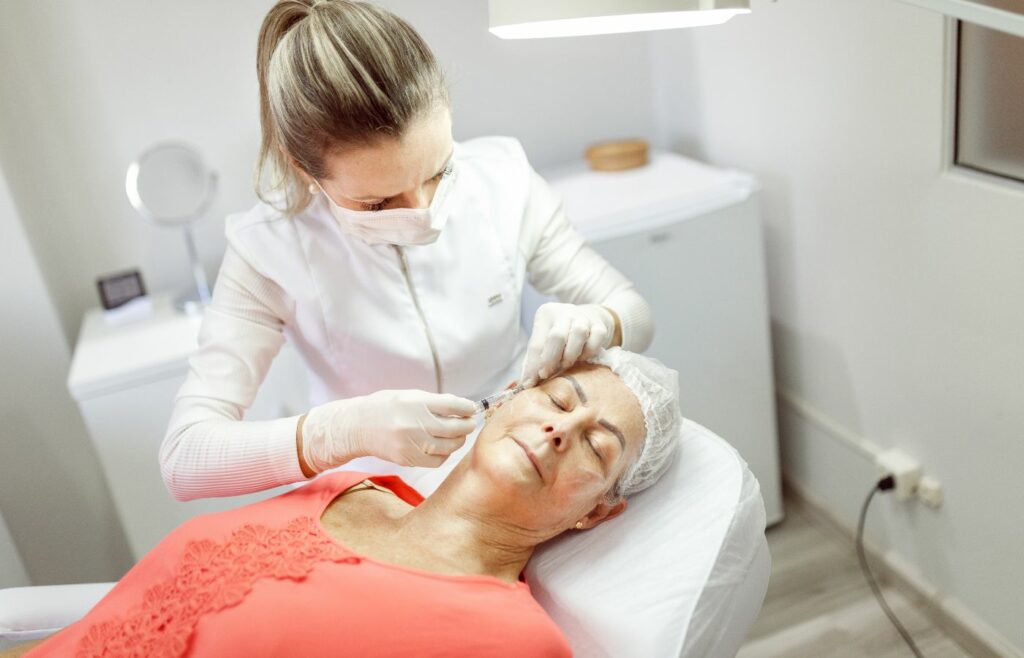
If you’re experiencing significant changes in your skin during menopause, it’s important to consult with a dermatologist. Some signs that you may need to see a dermatologist include:
- Persistent dryness, itching, or flakiness: These symptoms may indicate a skin condition such as eczema or psoriasis, which may require medical treatment.
- Severe acne or rosacea: Hormonal fluctuations during menopause can exacerbate these conditions, and a dermatologist can provide treatments to help manage them.
- Rapidly developing wrinkles: If you’re noticing a sudden increase in the appearance of wrinkles, a dermatologist can help to determine if there are underlying medical conditions or lifestyle factors contributing to this.
- Skin cancer: Menopausal women are at an increased risk of developing skin cancer due to years of sun exposure. It’s important to have any suspicious moles or spots checked by a dermatologist.
Closing Thoughts
Women can struggle physically and emotionally during menopause.
However, with the right skincare, diet, and lifestyle changes, you can maintain healthy, youthful skin during this transitional period.
You can confidently navigate menopause and wrinkles by nourishing your skin internally, protecting it from environmental damage, and seeking medical advice when needed.

